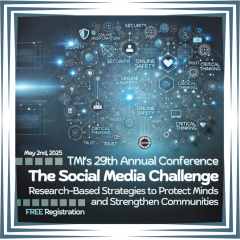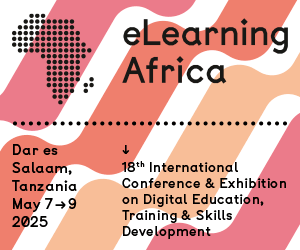No More "All You Can Eat"
 Ljubljana (SI), November 2010 - Davor Orliè is Publication Manager at VideoLectures.NET, which is run by the Centre for Knowledge Transfer in Information Technologies at the Josef Stefan Institute in Slovenia. At Online Educa, he will speak about "Knowledge Technologies Are the Next Step in Education" and will try to explain how learners get what they really need.
Ljubljana (SI), November 2010 - Davor Orliè is Publication Manager at VideoLectures.NET, which is run by the Centre for Knowledge Transfer in Information Technologies at the Josef Stefan Institute in Slovenia. At Online Educa, he will speak about "Knowledge Technologies Are the Next Step in Education" and will try to explain how learners get what they really need.
How should we interpret or envisage this "advanced technology"?
Davor Orlič: The advanced technology is in fact a way of making sense of the massive amount of data that learners are faced with while trying to consume the educational resources they want to explore at any given moment on the web. It also provides a way for institutions to understand in depth via advanced computer science methods who the online learners are, what their behavior is, the context background, and how to provide learners exactly what they need by profiling the content and personalizing the experience.
What is the approach of your activities?
Davor Orlič: We have developed a specific framework for training personalization based on advanced knowledge technologies combined with contextualization tools that can do personalization for users of specific knowledge domains on the fly. This includes a suite of tools containing a service-oriented text-enrichment tool, a user-targeting data-mining tool, and a recommendation-content system based on user preferences.
All three technologies take into consideration that there is an existing pool and deep body of structured, open educational content that has immense knowledge potential and is not fully exploited towards learners needs.
The Centre for Knowledge Transfer in Information Technologies at the Jožef Stefan Institute is familiar with these technologies, has implemented them on several test cases, and is proposing such an analytic and innovative approach towards training for the first time. As these technologies have been used separately in practice for specific purposes, when merged in one location and in one tool suite, they can become a powerful technological resource for the broader learning community.
What is the role and the weight of personalization in it?
Davor Orlič: Personalization of content for the learners' specific needs is becoming unavoidable and of key importance. The ultimate goal of every (technology-enhanced learning) system is to support personalization of the complete learning process that includes: personalization of content, methods, guiding, motivation, and learning goal.
Since we are dealing mainly with the established training channel VideoLectures.NET, a predefined set of learning methods and self-learning approach, our focus is to personalize content objects (videos) based on user needs and preferences. In order to understand user needs and preferences on one side and provide learning environment and content adaptation on the other, advanced knowledge and context technologies needs to be applied.
How do you see the reality of a learner in the future?
Davor Orlič: In the future, the learners' learning process will be more and more focused on web resources, where content can range from millions of online documents, videos, podcasts, excerpts, and other form of information. It will certainly demand that learners have an intelligent way to find their way around.
The reality of digital learning and learning environments, and especially the new learner who will have to deal with content in those environments, will be based on cognitive selection. No more "all you can eat", but rather "all you need to stay slim", expressing a more targeted knowledge-driven approach toward educational content in general.










